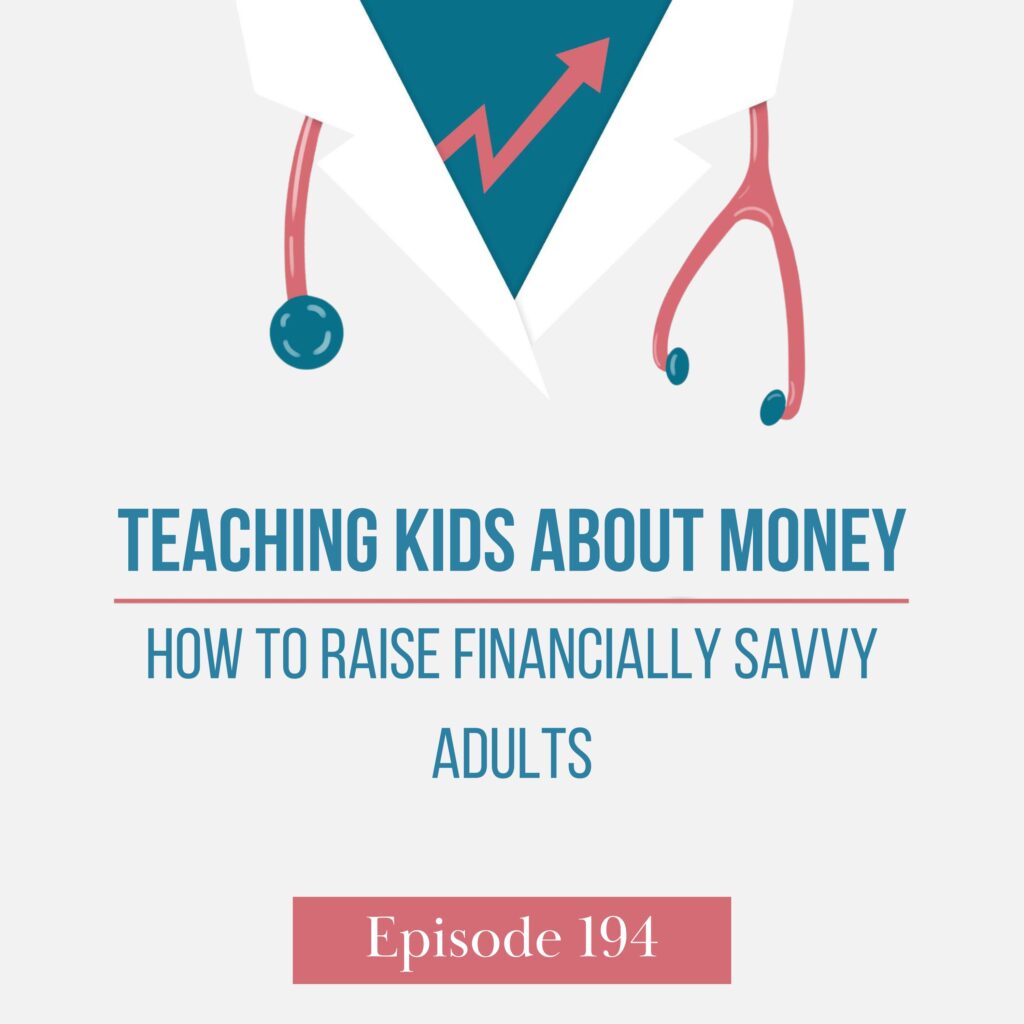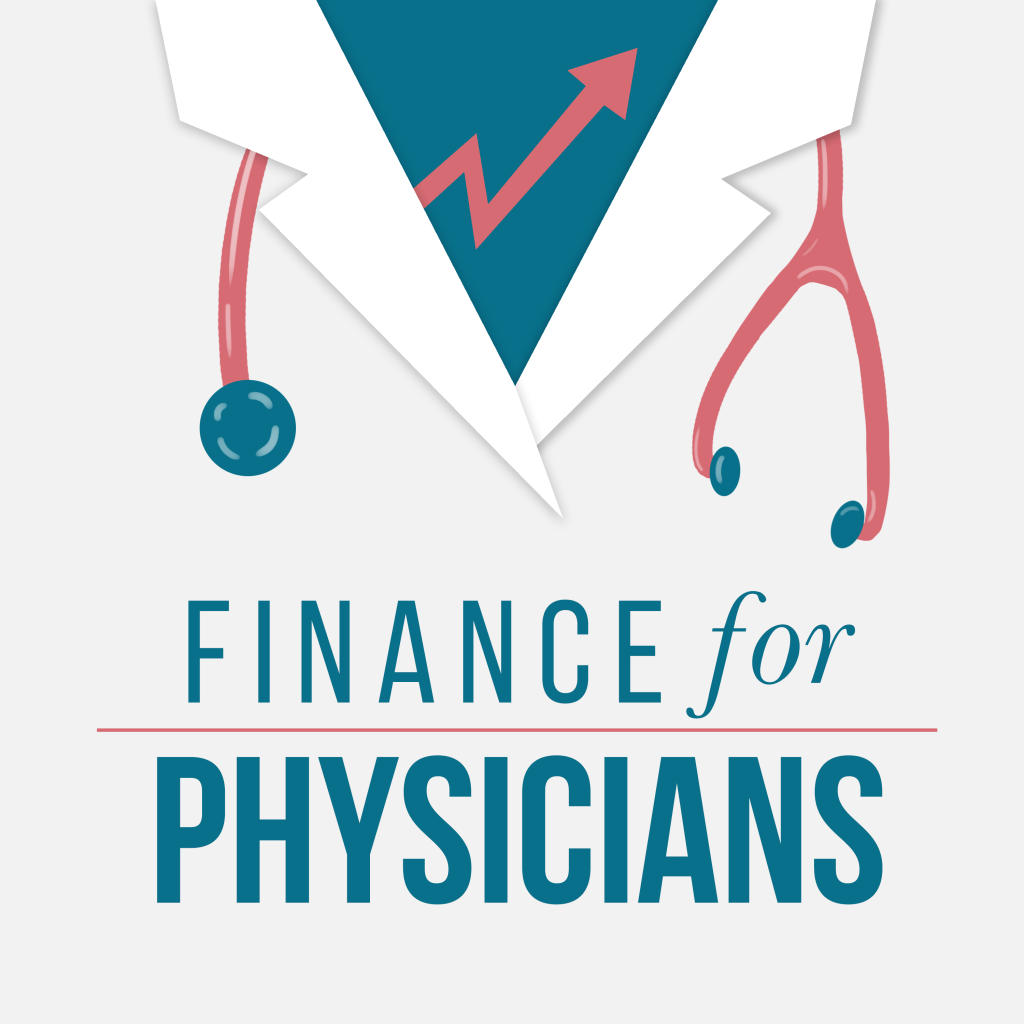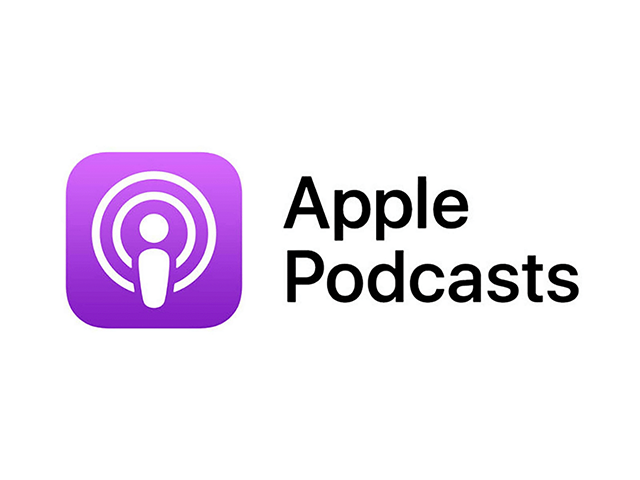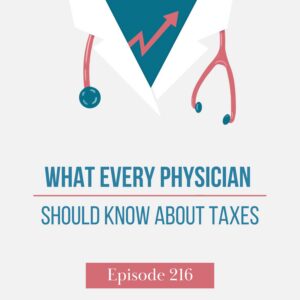How do you teach your kids about money?
In this episode, I sit down with Heather Lovallo to explore practical, real-life strategies for teaching our children financial responsibility.
Listen in as we explore simple ways to help your children build strong financial habits—without needing to be a money expert yourself.
Plus, you’ll hear about resources, including books and activities, to make learning about money both fun and impactful for children of all ages.
—————————————————————————————————————————
- The Golden Quest: Your Journey to a Rich Life by David Delisle
- Grandpa’s Fortune Fables by Will Rainey
- Connect with Heather
- Connect with me on my LinkedIn
- Contact Finance for Physicians
- Finance for Physicians
- To schedule a call with one of our awesome planners, book HERE.
Full Episode Transcript:
Heather Lovallo: There’s a better understanding about why when we go to the store and there’s something that the kids want, the response is, well, that’s not in the budget. A better understanding of why we’re not just gonna shell out money just because we want to think there’s a whole decision-making process that goes into that.
Welcome to Finance for Physicians, the show where we help physicians like you use money as a tool to live a great life. I’m your host, Daniel Wrenne, and I’ve spent the last decade advising physicians on their personal finances with the mission to help them understand that taking control of their finances now means creating a future where they can practice medicine where, when, and how long they want to.
Daniel Wrenne: Heather, how’s it going?
Heather Lovallo: It’s going well. Happy Friday.
Daniel Wrenne: Yeah. It’s Friday in…
Heather Lovallo: In podcast land, anyway.
Daniel Wrenne: It’s Friday. Hopefully, when you’re listening to this, it’s Friday for you too. But if not, it will come soon.
Heather Lovallo: Yes. Just a few more days.
Daniel Wrenne: A few more days. We got another fun topic to cover today.
And so we’re gonna be talk—I guess this may not be a topic for everybody. We’re gonna be talking about finances and how it ties into your kiddos. So maybe if you’re listening, you have kids. For sure, this is gonna be, I think, something that would be a benefit to you or maybe you’re in the future thinking about having kiddos.
I think this is the kind of thing—I have three kids and man I can’t believe I’m gonna say this, but it’s completely true. I heard it so many times from people when they were younger, but they’re like, they grow up fast and they do grow up fast. It flies by and all of a sudden I have an almost teenager, which is insane to say.
Can’t believe it. He’s got an attitude a little bit, like he’s really turned into a teenager and then they were like little babies not long ago. So they grow up really fast. And so I think most parents, probably all parents would say, they really want, one of the things they would like to teach their kids is to be responsible—in particular—responsible with money.
Heather Lovallo: Yeah.
Daniel Wrenne: And so you have to—that does not happen by chance for sure.
Heather Lovallo: No, that does not.
Daniel Wrenne: In fact, if you don’t do anything about it, pretty much think they’re gonna end up being like the culture. That’s just, and so if you look at the culture and I don’t want my kids to turn out like that.
You gotta be intentional about it and put in some effort, otherwise you probably at one point in the future are gonna have some regrets around it. So hopefully we can give you some ideas for how to start to think about this so that you don’t have those regrets in the future about, wish I could have in regards to your kids.
Heather Lovallo: Yeah.
Daniel Wrenne: Yeah, they do grow up fast, right? Heather, I know you know that.
Heather Lovallo: They do. Yep. I have two myself. One is 11, the other one is 10. And I hear you on a little bit of the attitude coming out already, but yeah, with regards to teaching kids about money, I feel like it’s something that our clients bring up a lot.
They have that intention, they want to do that. And it’s also a question mark of, “How do we do that?” This is not something by and large that is taught in school. A lot of people comment on that.
Daniel Wrenne: Not at all.
Heather Lovallo: I didn’t have any personal finance classes when I was growing up, and I wish I had, but at the same time, there’s a lot that’s taught by parents even if they don’t say a word about it. There’s always things that we are picking up on that we observed in our houses growing up.
Daniel Wrenne: Actions speak louder than words.
Heather Lovallo: Absolutely. Yep. And that carries over into how we do things for better or worse.
Daniel Wrenne: Yeah. Sometimes it’s a little scary, bu I guess you don’t have to be perfect, but like ideally that’s a little motivation to have your ducks in a row. Your kids are watching. So a lot of families I work with bring up the whole kids and finances thing by asking, “I wanna start an investment for ’em, or I want to help them save on taxes or how do I give them a head start on their investment account,” or those kinds of things.
And I would say when those come up, I typically am like hold on, let’s take a step back. Let’s back up a little bit. I think for starters, it is good to think about the future and investing in that kind of thing, but I think a good starting point maybe is like, where do they have a plan for?
Do they know what—I guess cash flow is the word, the technical word for it. Do they know how to manage their budget and their cash flow, and where is their money going or is it just like a gift? I see commonly parents aren’t thinking about it like this, but they’re like, “I’m just gonna give them the money.” The whole goal, I think my goal as a parent is I don’t want to turn my kid into a spoiled brat. That’s the other extreme. I want him to be financially responsible. That’s the goal. And worst case scenario is they’re spoiled brat.
Heather Lovallo: Yeah.
Daniel Wrenne: That’s worst-case scenario. So I think you gotta really be thinking about if I’m just giving them money to build up their investment account without teaching them the fundamentals.
Heather Lovallo: Sure, and with the fundamentals, even very basic things such as sales tax, right? If your child has never gone to the store to purchase things for themselves with their own money just to understand the price that’s marked on the shelf is not the same as what they’re gonna pay at the register.
Basic things like that can really throw people for a loop once they get out of the house and on their own. Just basics and understanding about budgeting, how the world works, how credit cards work, how that’s different from a debit card. How to write a check, things, who uses checks anymore?
I actually still but that being said… Like paper checks. My point is just the very, very basic understandings of how does our financial system work in the first place is really important to also teach them the value of how they want to spend their money, like how they’re making decisions about their money and what they wanna spend on, in addition to everything that you said about not wanting them to be spoiled brass and just expecting that it’s gonna come from mom and dad. And that will continue on forever.
Daniel Wrenne: Yeah. The other thing is money is a store of value and also it’s a trade-off for work. So money has like a very direct relation to work. And so I al I want to teach my kids good work ethic and to also understand the value of money.
Have an appreciation for it. And then as opposed to feeling entitled. I don’t want that. I want them to appreciate hard work and equating that to money. When you’re an adult, ’cause we’re trying to get our kids help them to turn into responsible adults. So as an adult, you don’t just get money.
Heather Lovallo: Right.
Daniel Wrenne: Doesn’t just appear. So like you have to work for it. And so at some point from now until 18 when they’re on their own or whenever had to have your kids be on their own. Maybe never. But hopefully for me, like my kids, by the time they’re 18 or so, they’re on their own.
From now until then, we have to get them to a point where they’re realizing they need to work hard so that they, and then they’re equating that to earning money, and then as they earn the money, they’re able to be responsible with it so that they can manage it appropriately and not blow it. So what happens sometimes I think is none of that gets talked about.
Unfortunately, I think this might be the norm, is that none of it gets talked about. The kids, not even in school, they’re not really learning much, and maybe they even see some bad habits from their parents because, like you were saying, actions speak louder, like the parents are gonna show or model the kids.
The kids are gonna model the parents, so then they turn 18 and they’re on their own and they absolutely know nothing.
Heather Lovallo: Right, right. And that was something for me growing up, my parents were not necessarily financially savvy, so to speak, but one thing they did is they gave me an allotted amount of money in a month.
When I was in high school and I was driving and it was meant to be, okay, if you need to pay for gas, it’s coming from this allotted amount. If you need clothes, if you need tampons, it’s coming from this amount. And that taught me how to budget before I even got out of the house. And I can say going to college, I felt light years ahead of a lot of my peers who were calling home every weekend to their parents saying, “I need money for pizza,” because they had just never managed that kind of thing before.
And I know with my kids, one of the things that we’ve talked about is opportunities for them to do some work before they’re even outta the house. So my son, for example, is already planning on wanting to work at Publix as a bagger when he is 14. And I can just foresee that when he’s starting to get a paycheck, there will be that realization of, “Oh, I get paid this amount per hour.But before it hits my pocket, there are things being deducted, like taxes, right?”
So that will absolutely spark conversations, but also I think provide a better understanding too about when mom’s talking about her household budget and the things that I have to pay for, there’s a better understanding about why when we go to the store and there’s something that the kids want, the response is, well, that’s not in the budget. A better understanding of why we’re not just gonna shell out money just because we want to think there’s a whole decision-making process that goes into that.
ADS BREAK
Daniel Wrenne: Let’s take a quick break to talk about our firm, Wrenne Financial Planning.
The goal of our podcast is to empower you to make better financial decisions, but sometimes the best financial decision you can make is to work with someone who understands your financial goals and has the expertise to keep you on track to reach them. That’s where Wrenne Financial Planning comes in. We are a full-service financial planning firm that works with over 400 physicians and their families across the country.
We charge a transparent monthly flat fee for our services and offer virtual meetings you can take from anywhere. Best of all, you’ll get to work with a team that specializes in working with physician families. So whether you’re starting out and wondering how you’ll balance your student loan payments and saving for a home, or you are an established physician trying to figure out how to pay for your kid’s college and how much you need to save to reach financial freedom, we can help.
I’ll put a link in the show notes to schedule a no-obligation meeting with one of our certified financial planners. Wrenne Financial Planning LLC is a registered investment advisor. For more information about our firm, please visit wrennefinancial.com. That’s W R E N N E financial. com.
ADS BREAK END
Daniel Wrenne: Yeah, I think that’s just a good experience. Experience when they’re young is so nice. If you can give them experiences to fail, and even if they fail royally, that’s the best.
When I was young, I was very motivated to earn money partly ’cause my parents were broke, so they were not gonna buy anything anyway, even if they wanted to. So I was like, I need—
Heather Lovallo: So you gotta figure it out yourself.
Daniel Wrenne: I gotta work so I can get the things I want to get.
So I was working very hard at a very young age and earning a pretty fair amount of money. I saved it up and I bought my first car, but then I saved, continued to save, and I started investing in stocks, and then I lost all of it.
Heather Lovallo: Yep.
Daniel Wrenne: That was one of my first lessons in investing is how not to invest.
But I’m always trying to give my kids opportunities to work to make money. That’s another thing to think about is like we just did it last weekend. I was like, “Who wants to wash my car?” And I’m like $7 or something. I don’t know. And If you do a good job.
Heather Lovallo: Yeah. Yeah. I love what you said about opportunities to fail, and I think that is so important to provide that opportunity before they’re out of the house when the stakes are low and there’s still a safety net.
I think that is a big part of building good financial habits. You gotta have the experience of buying the $50 thing from Amazon that turns out to be a piece of crap to better evaluate where you wanna spend your money later on. And my kids have certainly had those experiences and plan differently in the future for how they wanna spend their allowance.
Daniel Wrenne: Yeah. So you make the $7 washing the car or whatever.
Then the next question is what do you do with it? So spend it all on Fortnite skins? Or whatever they do. Or do you buy something on Amazon that’s junk, or do you save some of it? Or do you give some of it away, or…
Heather Lovallo: That’s right. Yep.
Daniel Wrenne: So you work hard to earn money appreciating the value of it.
Heather Lovallo: Yeah. And the time that you put in to get it.
Daniel Wrenne: The time, right? Which increases your level of appreciation, and then you then have to decide. Personally, I’ll give you some pointers, but like you get to decide, especially if they earned it where it goes, but then that gives them experience of making decisions with the money along the lines of where it goes. Even investing some of it or whatever. Like my oldest son has Nintendo stock.
We’re trying to teach him about investing. And he’s only 11, so you can learn these experiences at a really young age, whereas a lot of kids are not.
Heather Lovallo: Absolutely. And I think that gets to one of the key points that I’ve talked a lot about with my friends, is I think sometimes we underestimate our kids’ capacity to understand and learn things. Sometimes we feel like, “Oh, they’re too young to really get into this topic, and, we’ll wait until later.”
But I would argue, with my kids, I have been giving them more of a budgeting approach allowance since they were four and five years old.
Daniel Wrenne: Whoa. Yeah. That’s super early.
Heather Lovallo: Super early. I know, but started them out and we do a give-save-spend method. So we divvy up the amount that’s given equally into save-spend.
But it’s given them a lot of opportunity over time with an ever-increasing amount of allowance to make decisions. For example, with give, if they have a classmate that’s having a birthday party, I expect them to use their give money and not mine to buy that present. And I can’t tell you how many times we’ve had really awesome conversations where they are trying to find something that’s gonna fit, the personality of the person they’re trying to buy for, but also understanding yeah, you’re not gonna get them that $75 thing because they’re eight and you don’t have that kind of money.
So what can we do? What can we buy that’s gonna fit your budget? And so just a lot of those conversations about how much do you have, what decision making needs to happen. Even looking at things on sale, oh my goodness, that has become a big thing for the kids to try and find things on sale.
And it’s because of that awareness, because of that opportunity and that experience to start buying things. And also me delegating that responsibility to say, “Hey, you have the capacity to do this with your money.” And I feel like they really also like being empowered in that way and that can be very powerful.
Daniel Wrenne: So are you an allowance fan or no? You did say you did.
Heather Lovallo: So I call it an allowance, but the approach is really more of a budgeting, so I don’t tie it to things like grades or doing their regular chores because those are things that I expect them to do anyway, just like nobody pays me to do the laundry.
But that being said, absolutely if there are opportunities for them to make money beyond that, I know my daughter is looking at getting certified as a babysitter, and like I said, my son was looking at when he is old enough starting to work at the grocery store for example. Those are key things that their minds already spending on how can I earn more?
But no, for the allowance and my house, the way that I really wanted to approach it is a lot of what we’ve been talking about, which is them being able to have the opportunity to make decisions about what they have in a bucket of money. How I want to impress upon them the importance of you need to save for yourself first.
You need to have an amount that’s going to be something that you are giving, you are buying for others, you are tithing, that kind of thing. And then also the spending. So the freedom to say you can use that on whatever you want. Totally your decision, free rein there to blow it or save it up for something that you really want, up to you.
You can do whatever you want. And that has also been very helpful when we’ve been at the store and there’s the mommy, I want this. Great. It’s not in my budget, but you are absolutely capable of spending your allowance on it.
Daniel Wrenne: Yeah, and so they get to experience buying something. Maybe they make a dumb purchase or something, which is actually good.
Heather Lovallo: Yeah.
Daniel Wrenne: And they’re like, oh, that was dumb. ’cause it, or whatever. And then they know.
Heather Lovallo: Yeah. But again, so much better by my way of thinking for them to be able to have the freedom to make those stupid mistakes when they’re still young. The stakes are really low, the amounts are much smaller than they’re out in college or beyond.
Now we’re talking about some really big higher stakes things that we could make poor decision-making on and lose a lot more money.
Daniel Wrenne: Yeah. So there’s also a couple of books that I would recommend it since we’re talking about money with children.
Heather Lovallo: Yeah.
Daniel Wrenne: I’ve actually had the authors on the podcast a while.
It’s been a long time, but one of them is The Golden Quest: Your Journey to a Rich Life. And it’s David Delisle, but if you Google the Golden Quest, I think it’s the only one. But it’s on Amazon and then the other one is Grandpa’s Fortune Fables. And so I bought both of them for my kids and they read them multiple times shockingly.
Heather Lovallo: So are these ones that you read with them initially?
Daniel Wrenne: Okay. So the Golden Quest is really good for let’s see how old my son was when we did that. Maybe a 7, 8-year-old range, the Golden Quest is more like a picture book, it’s not a ton of, it’s much shorter.
And I’m trying to think of the book, those books that his age likes, like the Captain Underpants or something.
Heather Lovallo: Oh yes.
Daniel Wrenne: But it’s like a goofy exciting picture book and perfect for 6, 7, 8-year-old type age range. But it teaches about money. It’s got all kinds of money lessons in it.
And then the Grandpa’s Fortune Fable, it’s a fable obviously, but it’s a lot more words. So I get that one from my 10-year-old.
At the time he was 10 and he read it, I think he read it twice and I don’t know. I read ’em myself too before I gave them to ’em.
And then I interviewed the authors of them. And they’re very good lessons.
Heather Lovallo: Yeah. So what are the key points or the key lessons of those books?
Daniel Wrenne: They basically teach what we’re talking about in a… so they’re teaching like fiscal responsibility, like the benefits of hard work, the difference between getting rich versus wealthy, and the basics of investing and don’t blow all your money, and importance of giving, and all the things we’re throwing out.
Heather Lovallo: Yeah.
Daniel Wrenne: But I think the key for a book, especially for kids, is it has to be written in like a story format that’s somewhat enjoyable. And that’s what they did really well, it was like story time with money lessons.
Heather Lovallo: Yeah.
Daniel Wrenne: Which my true test was like is my kid gonna have the patience to get through it? And they did so that’s a huge win.
Heather Lovallo: Yeah. If you said multiple readings, then that’s definitely a win.
Daniel Wrenne: The Grandpa’s Fortune Fables, my oldest read it multiple times. He’s also big reader, so I think, I don’t know if that might have been part of it, but he’s usually reading, I don’t know, like Harry Potter or something like that kind of stuff.
Heather Lovallo: Yeah. Yeah.
Daniel Wrenne: But yeah, just giving your kids opportunities to learn, they’re like sponge sponges. They wanna learn it and they just soak it right up. And you don’t have to be a financial expert to teach ’em either. Like we’re financial planners, but like we’re…
Heather Lovallo: You really don’t have to be. Yeah. Yeah. So there are simple things like with the way that I do the kids allowances, we still do it with cash.
And so they have envelopes, give-save-spend envelopes, and whenever we go to the store and they wanna, spend their money on whatever, they will bring that spend envelope. And I can’t tell you how much they love the positive reinforcement that they’ll get from cashiers. And they’re like, “Oh, you’re paying for this with your own,” and talking about the change that they’re going to get.
You know how much they need to count out. So much positive reinforcement for that, which is great for them and it reinforces for them and encourages them to keep on learning more and doing that. So that has been really fun to see.
Daniel Wrenne: Yeah, that’s a good idea. “I have the bank of dad, and then I just use my credit card,” but yeah, it’d be much better. I like the idea of having them use cash.
Heather Lovallo: Yeah. It definitely has helped them in school as they’re learning about change. All of the math problems that an involved change, right? They said, yep.
Daniel Wrenne: Wait a minute, you already have learned this?
Heather Lovallo: Yep. Yep.
Daniel Wrenne: All right. Any other parting thoughts on helping our kids turn into responsible adults with money?
Heather Lovallo: Yeah I think really it’s just understanding if our listeners are anything like me, I wish that my parents had taught me different things, more things, talked more about money when I was growing up so that I didn’t have to learn some things the hard way. But that being said, that definitely influences the way that I am trying to parent my kid because I am hopeful that when they are an adult looking back at what they were taught growing up, that it will be the lessons that I wished I had learned.
And I’d say that maybe that’s really where to start as you think about what you wanna teach your kids about money is, when they’re an adult, what would you hope they would say they learned from you? And then back into your strategies about how you’re gonna do that from there.
Daniel Wrenne: Yeah, that’s an excellent way to look at it and a very good closing thought.
I think everybody could benefit from at least going through the thought exercise of that. It’s like hmm, where would I like for my kids to end up?
Heather Lovallo: Yeah. Yeah.
Daniel Wrenne: And then what can I do today to help them?
Heather Lovallo: To get them there. Yeah.
Daniel Wrenne: Awesome. It’s been good chatting about this. We’ll look forward to getting on again soon.
Heather Lovallo: Absolutely. Thanks, Daniel.
Daniel Wrenne: Thanks, Heather.
No guests or clients appearing on the podcast received any form of compensation for their appearance and obtained no other benefit from us. It should not be assumed that every client has had the same experience.









